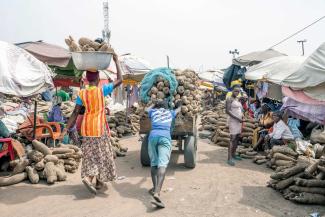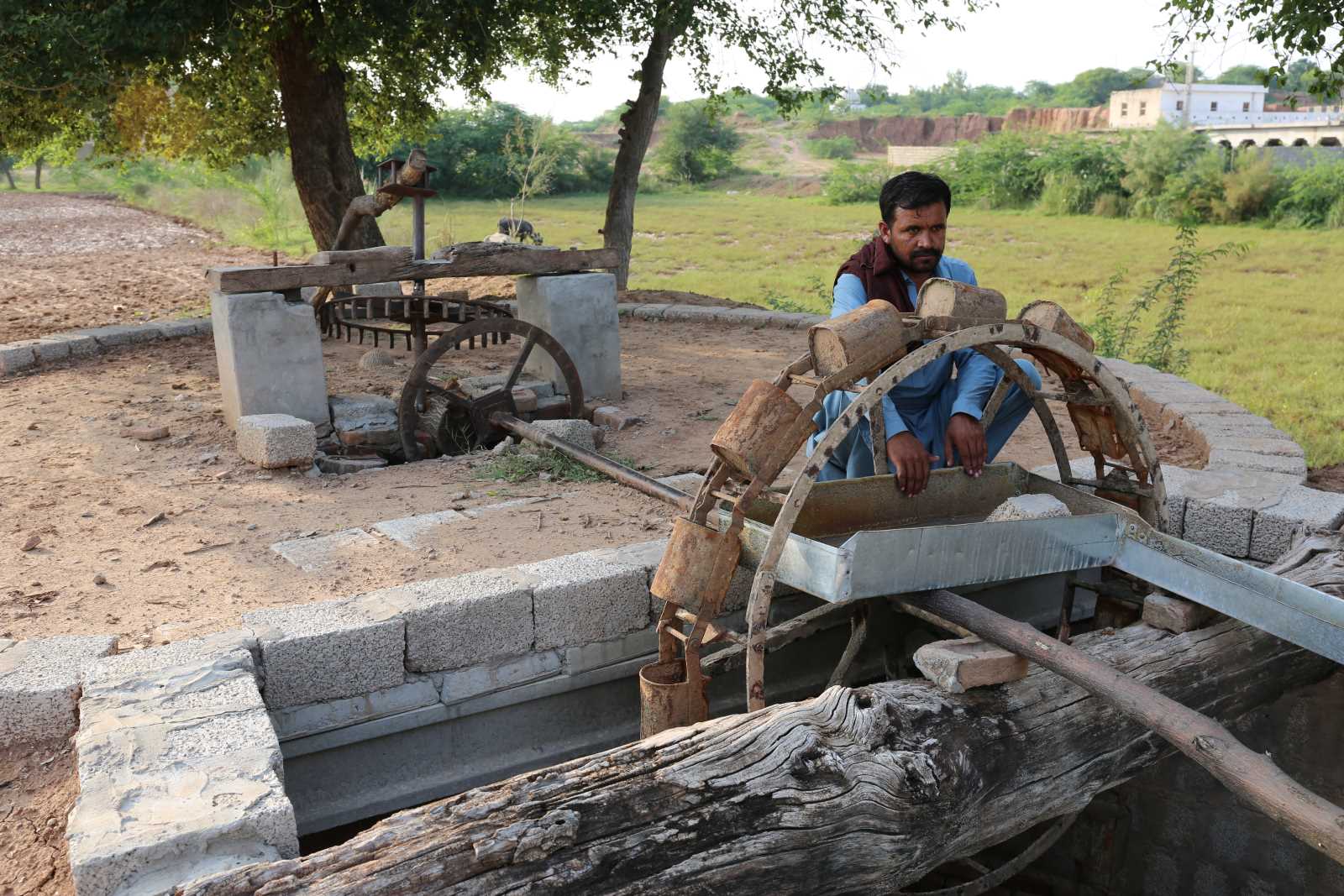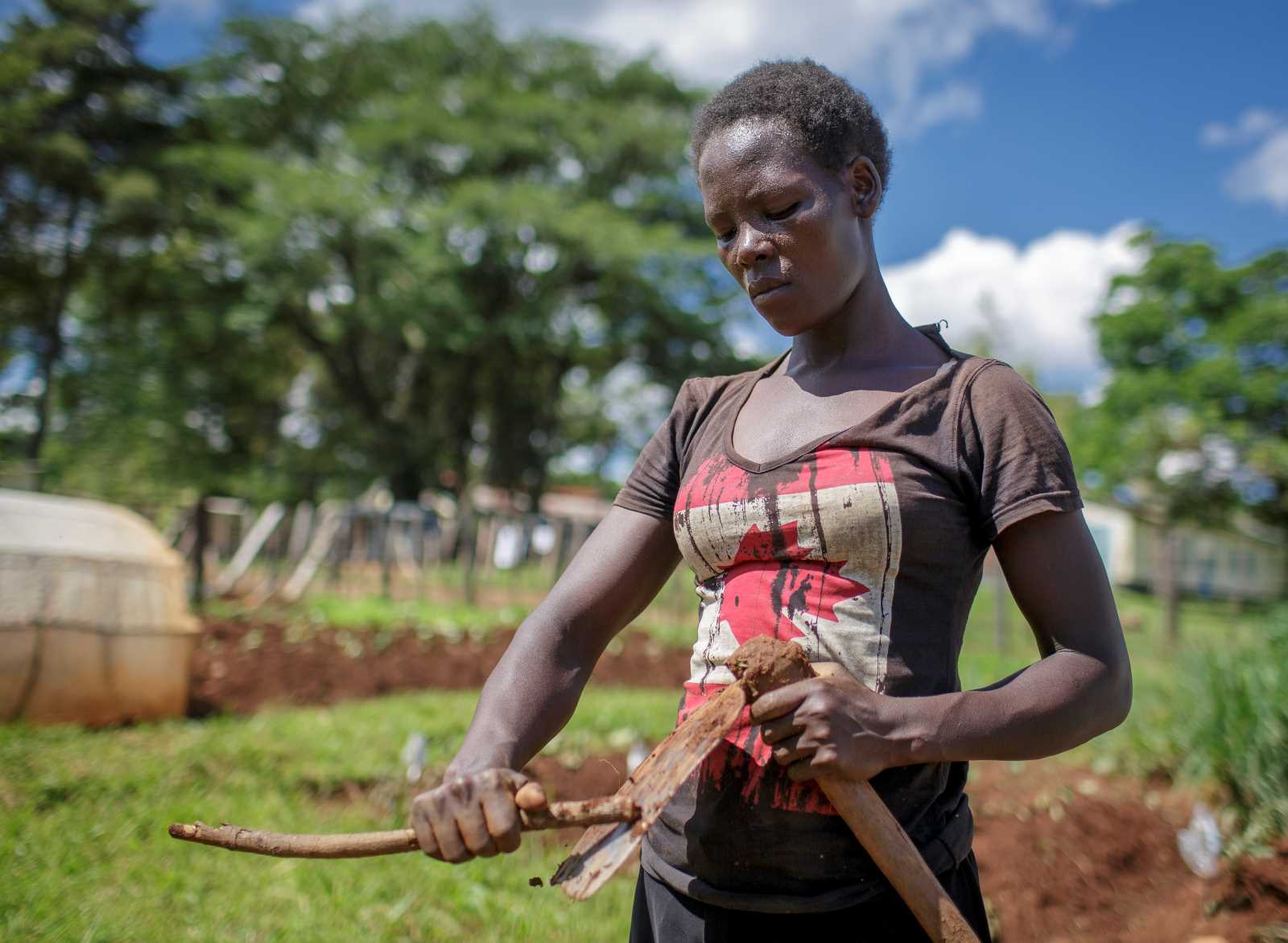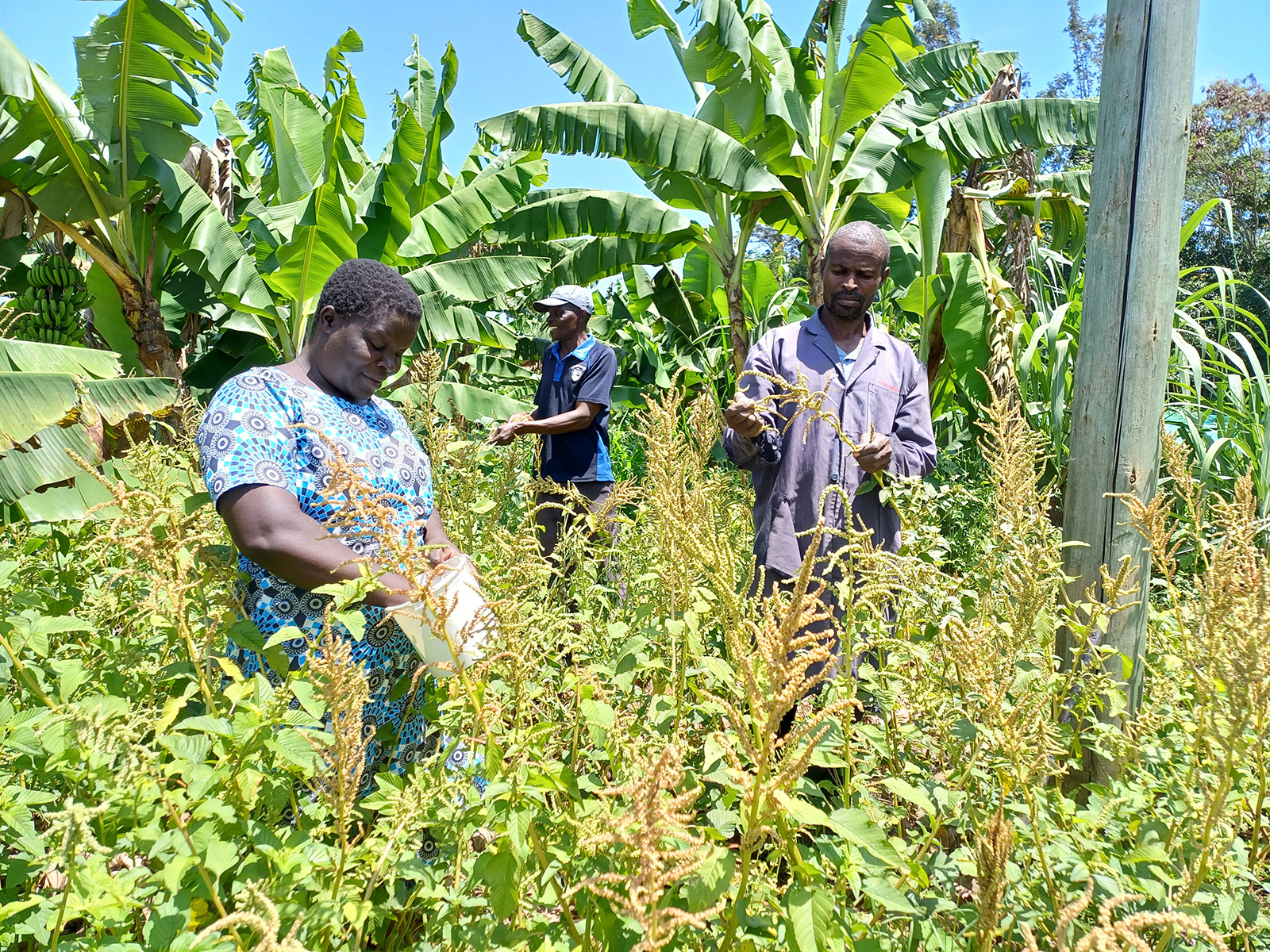African food systems
Lack of research thwarts African food security

In many African countries, food security cannot be taken for granted. Three distinct trends are making matters worse:
- The climate crisis is rendering traditional farming practises increasingly unviable.
- Populations are growing, so countries will need more food in the future.
- Dependence on grain imports mean that macroeconomic problems fast compound food insecurity, malnutrition and hunger.
In theory, countries can rise to these challenges by modernising their food systems. It is well understood that the productivity of African farms is quite low and should be increased. It is equally well known that a lot of food rots before it can be consumed. The reason for post-harvest losses is that produce is often not stored properly, not processed fast enough and not distributed to consumers efficiently.
What needs to change is thus quite obvious. Innovations along the entire supply chain would help. Nonetheless, it is often very difficult to take action accordingly.
Why traditional knowledge is suboptimal, but dominant
The worst bottleneck is probably the over-arching lack of evidence-based knowledge. In sub-Saharan countries, masses of people – as a rule of thumb around 80 % of the population – depend on subsistence farming and informal economic activity. These people are largely guided by traditions and habits. In many cases their knowledge is passed on from person to person and from generation to generation. It is not necessarily wrong, but it is typically suboptimal and incomplete.
Poor people stick to the established patterns because they are risk adverse. They are not stupid and certainly see that other options might deliver better results. Most smallholder farmers and petty traders, however, are so poor that they cannot afford any losses. To them, the safest way to feed their families is to stick to what has worked in the past.
How they operate is mostly not documented. That is equally true of their revenues, expenditures and profits. To a considerable extent, moreover, the nutritional components of food items remain unknown too. Some may not be safe to eat because of various kinds of contamination. Poor farming practices – misuse of agrochemicals and inadequate storage, for example – may also render food unsafe.
An overarching lack of evidence and data
Many aspects of the entire supply chain – from rural fields to urban markets – remain under-researched. These knowledge gaps hamper development. They make it difficult to draft professional business plans or to design targeted policy interventions. It compounds the problem that infrastructure is typically inadequate or even non-existing in the remote regions of developing countries.
The situation is totally different in high-income countries where value chains are thoroughly monitored. In the EU, for example, there are reliable statistics regarding farm inputs, agricultural productivity, storage, processing, distribution, supermarket sales and food safety. Thanks to a host of professional researchers, there is abundant data regarding every step. Fundamental research and some applied research are typically done by universities, while government agencies collect monitoring data and private-sector companies employ experts for marketing statistics as well as for research and development.
Prosperous economies are fast turning into knowledge-based economies. Their multilayered markets rely on similarly multilayered research systems. In spite of huge complexity, decision makers have a clear and data-based idea of what is going on.
In most African countries, by contrast, that is not the case. Entire nations and their ecosystems are under-researched. It is striking, for example, that Africa’s traditional staple foods have largely given way to globally used crops – in particular rice, wheat and maize. However, the dependence on these cereals has serious implications for health, the ecology and macroeconomic stability.
To modernise African food systems as necessary, more research is needed along the entire supply chain. The capacities of universities and research institutions, however, are weak and overstretched. African nations typically have far fewer academically trained people than high-income countries. Accordingly, government agencies and private companies also do less data collection, information processing and evidence-based planning. Even if they want commission research to plug information gaps, they typically struggle to find competent applicants.
Donor-driven research
It also matters that African researchers, who want to focus on a specific part of the food system, face a challenge their counterparts in more prosperous world regions would find irritating. In Europe or North America, different kinds of institutions make funding available for specific kinds of fundamental or applied research. Some of these institutions are private and profit-oriented, some are charitable foundations and some are even government-sponsored entities. Researchers apply for funding from those agencies depending on what exactly they want to do.
African research systems are not diversified in that way. The funding options are quite limited. Indeed, scholars mostly depend on multilateral and bilateral development agencies which do not specialise in research. Two implications are quite important:
- The persons who decide, do not have a mandate to fund research as such. Their job is to identify development projects that will deliver tangible outcomes, in terms of 30,000 smallholder farmers having been trained, for example, or 20,000 slum children receiving healthy food for a year.
- The decision makers are typically not based in Africa. They live overseas and are not familiar with African daily life. They may fail to notice interesting aspects of a proposal that would be obvious to people in Africa.
Project designs often reflect what donor agencies believe to be important, deviating from what Africans would prioritise. For funding reasons, moreover, African researchers often find themselves doing work that tackles the entire supply chain, rather than focusing on their specific field of expertise. Plant geneticists, for example, may thus be expected to tackle business challenges such as the distribution of processed items or to make consumers aware of health issues. On the other hand, they keep hopping from one short-term project to the next.
Strong national research systems are necessary. The fewer elements of a country’s food system are thoroughly understood, the harder it is to introduce innovations. To create a business environment that is conducive to innovation, it is essential to plug as many knowledge gaps as possible as fast as possible. Interaction with stakeholders such as venture-capital funds or farmers’ organisations will help to focus on relevant issues. The past years have seen a proliferation of many isolated projects.
The plain truth is that decisions on research funding tend to be taken in high-income countries and are not owned by African experts. “He who pays the piper, calls the tune,” goes an old saying. For much research on African food systems, it remains valid.
The way forward
In the current geopolitical setting, ODA will obviously not increase, but is set to decrease substantially. Spending ODA money well is thus becoming yet more important. The silver lining is that a rethink is going on internationally. Donor agencies today are increasingly taking more interest in issues such as forgotten foods.
The CGIAR (Consultative Group for International Agricultural Research) must rise to the situation. It is funded by donor governments, multilateral organisations and philanthropic foundations. It is well known for its centres of excellence such as IFPRI (the Washington-based International Food Policy Research Institute), IRRI (the Manila-based International Rice Research Institute) or CAP (the Lima-based Centro Internacional de la Papa / International Potato Center).
Instead of prioritising these institutions, the CGIAR could – and should – do more to boost national research systems in developing countries by involving national actors in its research programmes. Too often, its capacity building is limited to individuals. They should strengthen institutional capacities. In many cases, CGIAR centres have indeed weakened such capacities by poaching researchers from national systems.
The CGIAR Science Week will take place in Nairobi from 7 to 12 April. The conference will discuss the agenda for the next years. It will be dominated by severe funding cuts. Several thousand jobs are at risk. In this worrisome scenario, a fundamental rethink is needed. The big challenge is to ensure that national research systems can operate well.
The author would like to thank several international experts, mostly Africans, he has interviewed for this essay. As some of them do not wish to be named, he has decided not to name anyone to make sure that no one attracts the scorn of a donor agency.
Hans Dembowski is the former editor-in-chief of D+C.
euz.editor@dandc.eu
















